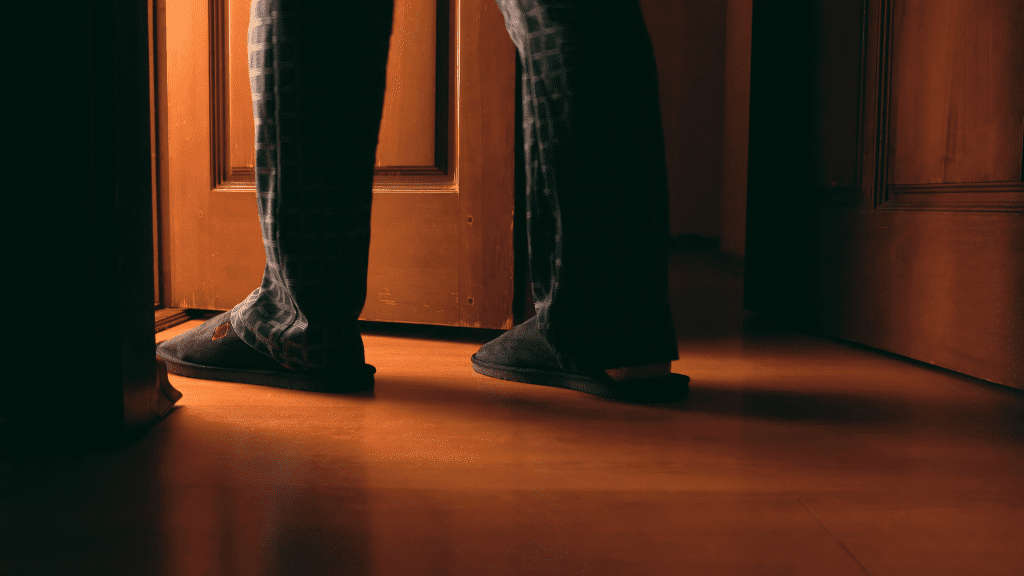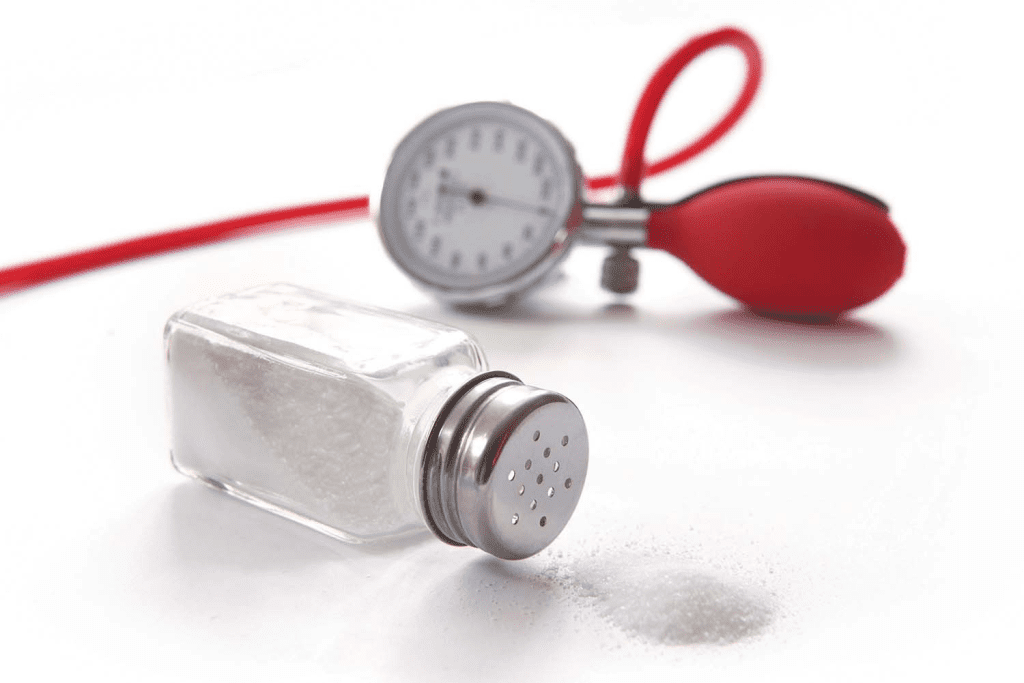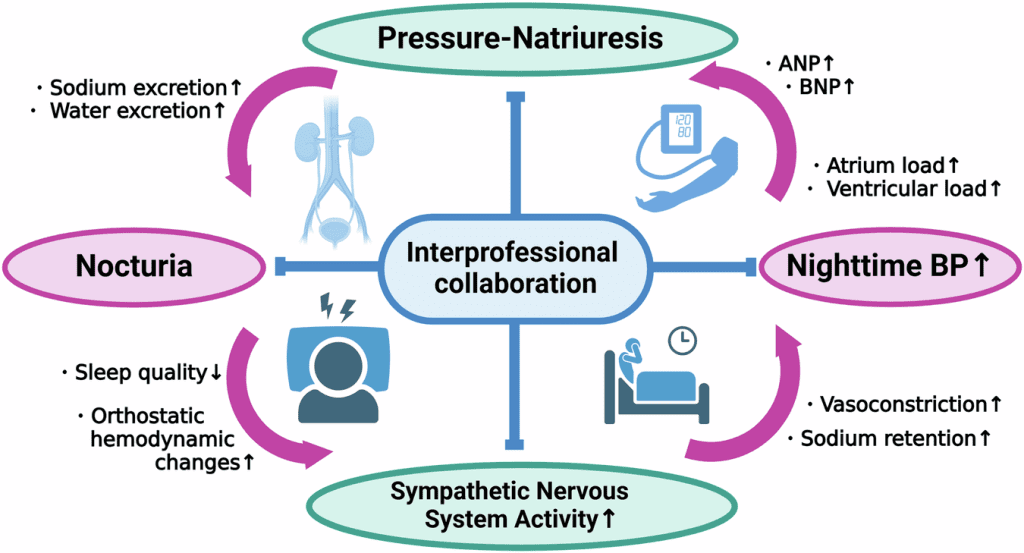We’ve all been there—waking up in the middle of the night with the sudden urge to use the bathroom. It might seem like a harmless inconvenience, but did you know that frequent trips to the bathroom at night could actually be a warning sign of a more serious health condition?
Recent research suggests that getting up to pee often during the night, a condition known as nocturia, could be linked to heart failure and high blood pressure. While it’s normal to wake up occasionally, consistently needing to urinate during the night may signal an underlying health issue.
Let’s dive into why this happens and how you can recognize whether your nightly bathroom trips are a cause for concern.
Why Do We Get Up to Pee at Night?

On average, most adults should be able to sleep 6 to 8 hours without needing a bathroom break. However, some people find themselves waking up frequently, disrupting their sleep cycle. So, what’s causing these late-night trips to the bathroom?
Common Reasons for Nightly Urination
There are several reasons you might find yourself needing to pee during the night, including:
- High fluid intake before bed
- Alcohol or caffeine consumption in the evening
- Small bladder capacity
- High blood pressure
- Diabetes (Type 1 and Type 2)
- Pregnancy
- Water retention
- Sleep apnea
- Benign prostatic hyperplasia (BPH) in men
- Medications (diuretics, cardiac glycosides, lithium, and others)
While some of these causes are relatively harmless, others may indicate more serious health issues. Understanding why you’re waking up to pee is crucial in determining whether it’s a simple lifestyle issue or something that needs medical attention.
Video : Waking up to PEE at NIGHT? This is why…
The Surprising Link Between Nightly Urination and High Blood Pressure
One of the most intriguing findings in recent medical research is the link between frequent urination at night and high blood pressure. A study conducted in Japan discovered that individuals who woke up at least once per night to urinate had a 40% higher risk of having hypertension compared to those who slept through the night.
The Japanese Study: What You Need to Know
Presented at the 83rd Annual Scientific Meeting of the Japanese Circulation Society in 2019, the study involved 1,882 participants. Out of these, 1,295 individuals reported getting up at least once per night to use the bathroom.
The researchers found a clear correlation between nocturia and elevated blood pressure. Although waking up occasionally is normal, doing so frequently could indicate that your blood pressure levels are higher than they should be.
The Role of Salt in High Blood Pressure
Japan has one of the highest salt intakes globally, averaging around 10 grams per day, which is more than double the global average of 4 grams per day. High salt consumption is known to contribute to hypertension, which in turn can lead to cardiovascular diseases such as stroke and heart failure.

How Salt Affects Urination
Excessive salt in the diet can increase fluid retention, leading the body to expel more fluids to maintain balance. This process can result in frequent nighttime urination, especially in individuals with already elevated blood pressure.
Should You Worry About Salt Intake?
If you often wake up at night to pee and know you consume a high-sodium diet, it might be time to rethink your eating habits. Reducing sodium intake can not only lower your risk of hypertension but also help reduce the frequency of nocturia.
Nocturia and Heart Failure: Are They Connected?
While nocturia itself doesn’t necessarily mean you have heart failure, it can be an early warning sign. Heart failure affects the heart’s ability to pump blood effectively, which can cause fluid to accumulate in the lower body during the day. When you lie down at night, this fluid moves to the kidneys, increasing the urge to urinate.
Key Symptoms to Watch For:
- Frequent urination at night (two or more times)
- Shortness of breath while lying down
- Swelling in the legs or ankles
- Persistent fatigue
- Difficulty exercising or walking long distances
If you notice these symptoms alongside nocturia, it’s important to seek medical advice as soon as possible. Early detection of heart failure can significantly improve treatment outcomes.

When to See a Doctor
While occasional nighttime trips to the bathroom are normal, frequent episodes can disrupt sleep and indicate a deeper health problem. Consider seeing a healthcare professional if you experience:
- Frequent urination (more than twice per night)
- Interrupted sleep causing fatigue
- Swelling in lower limbs
- Trouble breathing while lying down
- Unexplained weight gain or bloating
Getting a Proper Diagnosis
Your doctor may recommend:
- Blood pressure monitoring
- Urine tests to check for infections or glucose
- Blood tests to assess kidney function
- Sleep studies if sleep apnea is suspected
How to Reduce Nighttime Urination
Addressing the root cause of nocturia can significantly improve your sleep quality and overall well-being. Here are some practical steps you can take:
- Limit Fluid Intake Before Bed: Avoid drinking large amounts of water, tea, or coffee within 2 hours of bedtime.
- Cut Down on Salt: Reducing salt in your diet can decrease fluid retention.
- Monitor Your Blood Pressure: Regular checks can help identify hypertension early.
- Manage Diabetes: Proper blood sugar control can reduce the risk of nocturia.
- Sleep Hygiene: Maintain a regular sleep schedule and minimize disruptions.
- Consult a Doctor: Rule out underlying conditions like sleep apnea or prostate issues.
Video : Doctor explains NOCTURIA (peeing at night)
Why Ignoring Nocturia Could Be Risky
Ignoring frequent nighttime urination can lead to chronic sleep deprivation, which negatively impacts your mood, energy levels, and cognitive function. More importantly, if nocturia signals a serious issue like heart failure or hypertension, delaying a check-up could have severe consequences.
By being proactive about your symptoms, you can protect your health and potentially catch serious conditions early, making them easier to manage.
Final Thoughts: Take Your Nightly Urges Seriously
Waking up occasionally to use the bathroom might seem harmless, but when it becomes a regular occurrence, it could be your body’s way of signaling a problem. Whether it’s related to high blood pressure, heart failure, or other underlying issues, it’s essential not to dismiss frequent nighttime urination.
Pay attention to your symptoms, assess your lifestyle habits, and don’t hesitate to consult a healthcare professional if you’re concerned. Your body is trying to tell you something—don’t ignore it.


